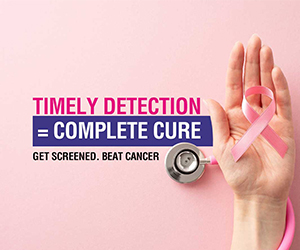Conflict Resolution in Romantic Partnerships: Healthy vs. Harmful
Learn the difference between healthy and harmful conflict resolution strategies in romantic relationships. Discover practical tips for managing disagreements, improving communication, and strengthening emotional bonds.

Conflict Resolution in Romantic Partnerships: Healthy vs. Harmful
Every romantic relationship experiences conflict. Disagreements, misunderstandings, and emotional tension are natural parts of human connection. However, the way couples handle conflict can either strengthen their bond or erode it over time. Conflict itself is not the problem—it's the approach and the resolution strategies that determine whether a relationship thrives or deteriorates.
Understanding Conflict in Romantic Relationships
Conflicts often arise from differences in personality, values, communication styles, and life experiences. Some couples argue about finances, others about household responsibilities, intimacy, or parenting. Regardless of the topic, how couples navigate conflict significantly impacts emotional well-being and long-term relationship satisfaction.
What Makes Conflict Resolution Healthy?
Healthy conflict resolution fosters growth, mutual understanding, and emotional intimacy. Couples who handle disagreements constructively often report feeling closer and more respected afterward. Key traits of healthy conflict resolution include:
- Active listening – Partners truly hear each other without interrupting or becoming defensive.
- Empathy – Each person seeks to understand the other’s perspective, even if they disagree.
- Use of “I” statements – Expressing feelings without blaming, such as “I feel hurt when…” instead of “You always…”
- Emotional regulation – Taking a break if emotions run high, then returning to the conversation calmly.
- Compromise and problem-solving – Working together to find solutions that respect both partners' needs.
When handled well, conflict can help couples grow, reinforce boundaries, and better understand one another’s emotional needs. It's an opportunity for learning and deeper connection, not just a hurdle to overcome.

Signs of Harmful Conflict
In contrast, harmful conflict erodes trust, safety, and emotional connection. When couples repeatedly fight without resolution or resort to personal attacks, it creates lasting damage. Unhealthy conflict may include:
- Yelling, name-calling, or insults
- Passive-aggressive behavior or stonewalling
- Blame-shifting and deflection
- Refusing to apologize or compromise
- Physical intimidation or threats
These behaviors damage emotional safety and communication. Over time, they can lead to resentment, emotional distance, and even relationship dissolution.
Common Conflict Triggers in Relationships
Though every relationship is unique, certain themes commonly spark conflict. These include:
- Money – Spending habits, saving, or differing financial goals
- Sex and intimacy – Differences in desire or emotional needs
- Time management – Work-life balance or quality time together
- Family and in-laws – Boundaries and obligations
- Parenting – Discipline, routines, or roles
Recognizing these patterns early can help couples address them before they escalate into larger issues.
Strategies for Healthy Conflict Resolution
Healthy conflict resolution is a skill that can be developed and improved with practice. Effective strategies include:
1. Create a Safe Space for Dialogue
Choose a time when both partners are calm and undistracted. Avoid discussing sensitive topics during high-stress moments or when emotions are running high.
2. Practice Active Listening
Let your partner speak without interruption. Reflect back what you hear to confirm understanding. For example, “So you’re saying you felt unsupported when I…”
3. Use Non-Defensive Communication
Resist the urge to defend or counterattack. Validate your partner’s feelings even if you don’t fully agree.
4. Focus on the Issue, Not the Person
Stay on topic and avoid bringing up unrelated past issues. Avoid character attacks or labels like “lazy” or “selfish.”
5. Collaborate on Solutions
Instead of competing to “win” the argument, work as a team to find compromises or creative solutions that benefit both partners.
6. Know When to Take a Break
If emotions become overwhelming, agree to pause the conversation and resume later. Taking a break prevents escalation and allows time for reflection.

When to Seek Help
If conflict patterns become entrenched or emotionally damaging, seeking help from a licensed couples therapist can be transformative. Therapy provides a neutral space to improve communication, rebuild trust, and break destructive cycles.
Conclusion
Conflict is inevitable, but how we handle it makes all the difference. Healthy conflict resolution fosters intimacy, respect, and growth. Harmful conflict, on the other hand, can undermine love and lead to emotional distance. By developing empathy, communication skills, and emotional awareness, couples can turn conflict into an opportunity for greater connection. Remember, it’s not about avoiding fights—it’s about fighting well.











